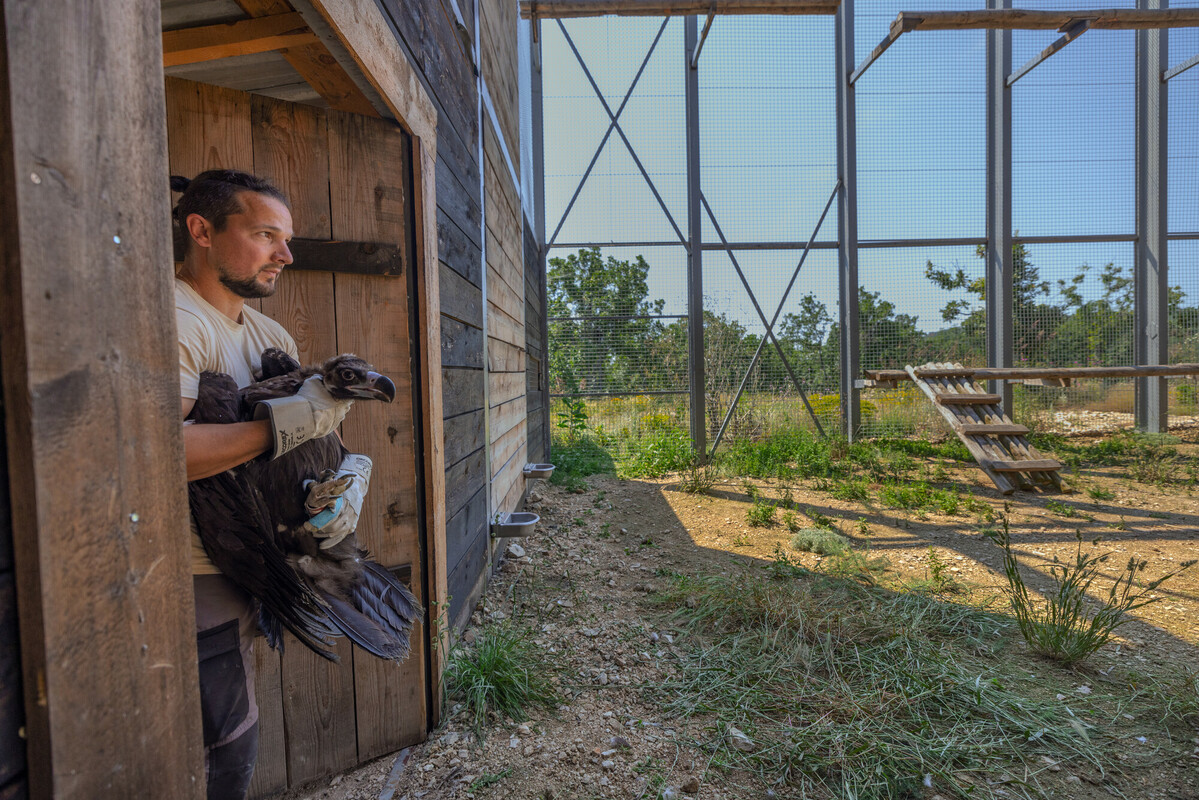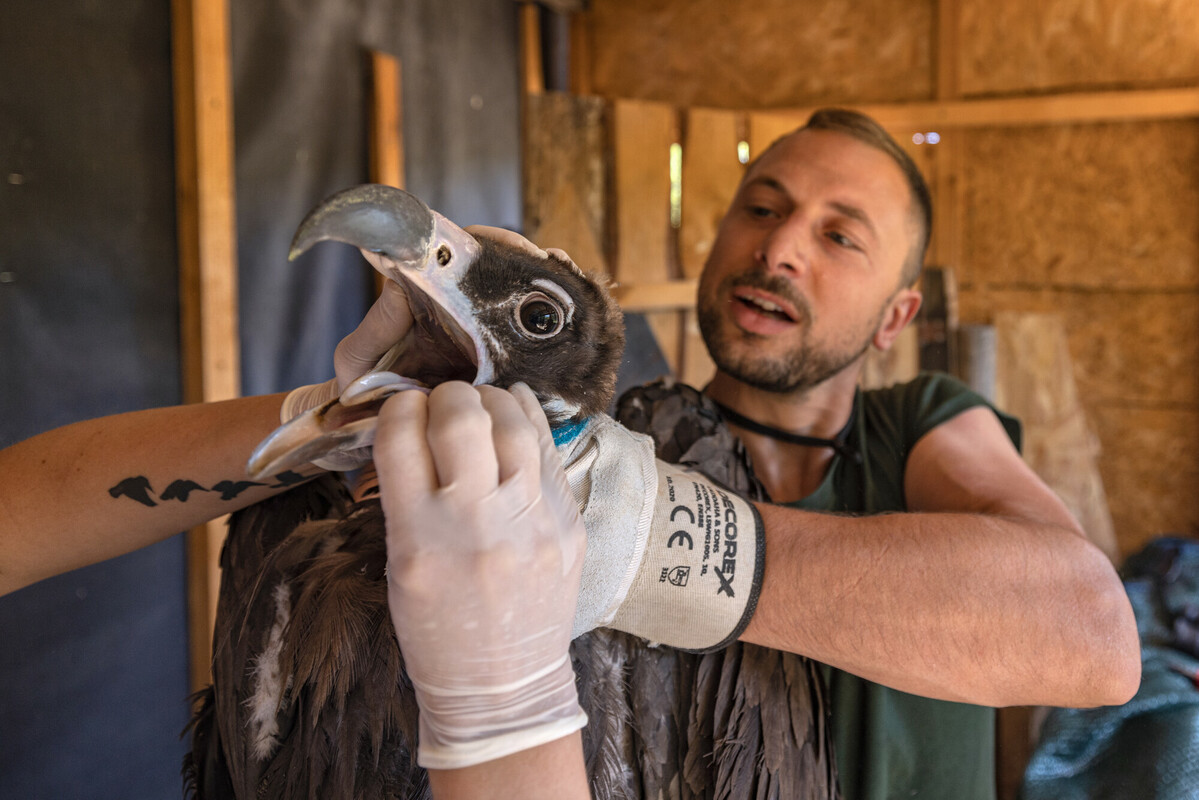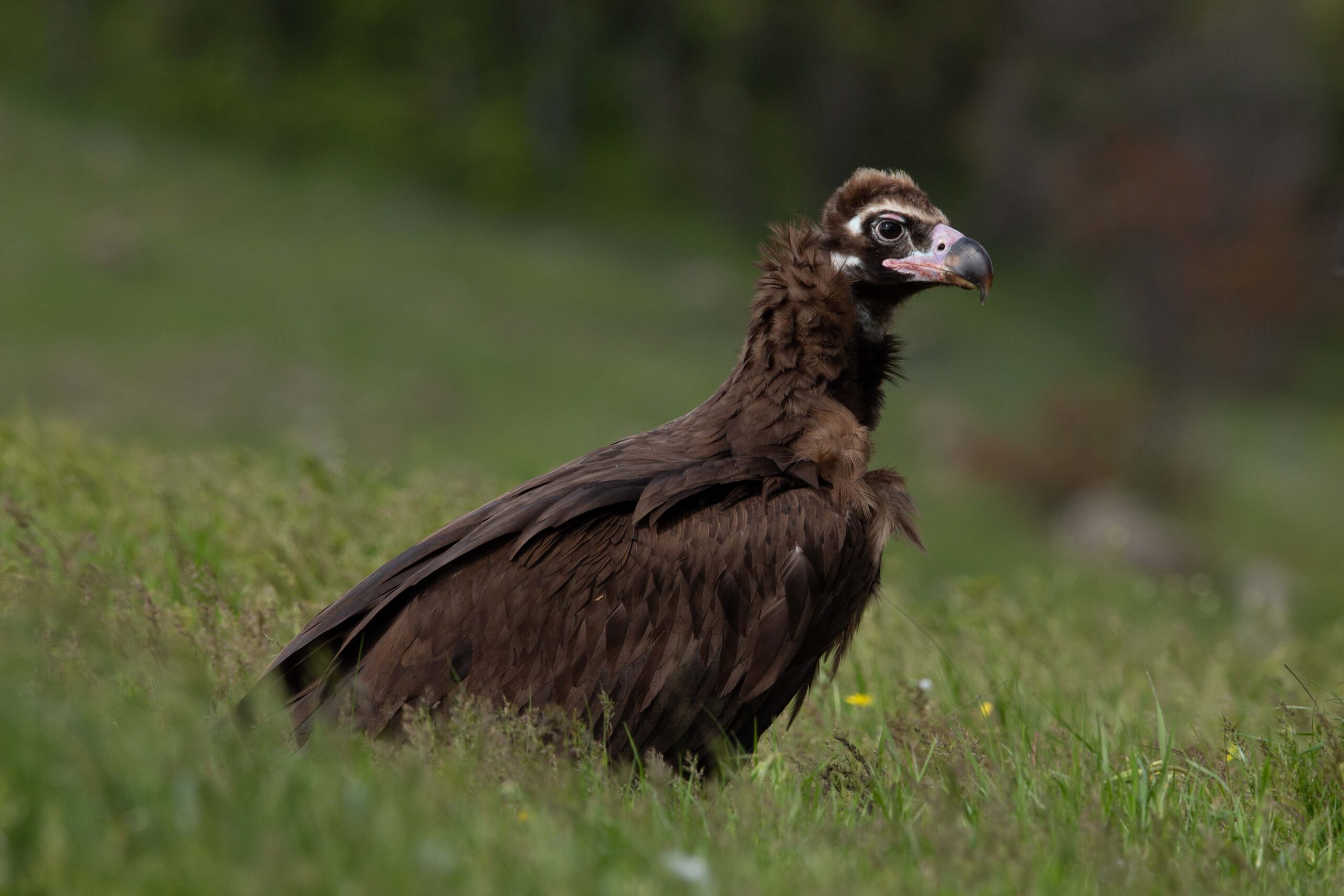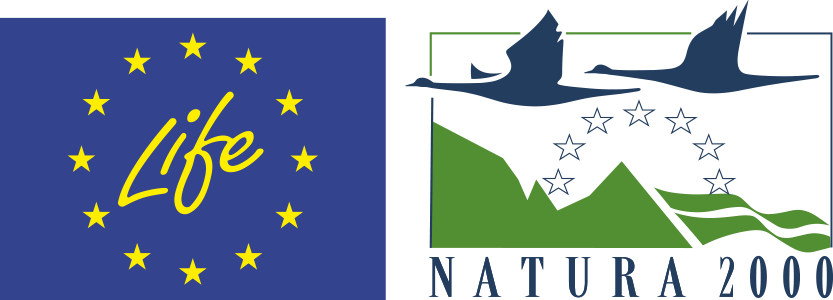Six more Cinereous vultures, transported from Spain, arrived last week Rhodope Mountains rewilding landscape. The first group of Cinereous vultures in the Rhodope Mountains arrived 2022 and now a total of 16 birds are currently living free in the Rhodopes.

The new group will join in the spring of 2025 the birds already released in the past two years, with the goal being to form a colony in Bulgaria. “This will support the survival of the species in the Balkans by directly reinforcing the natural population of the species in Greece and creating a new one in the Bulgarian part of the mountain.” The long-term goal is to support the recovery of the black vulture in the species’ former breeding grounds,” said Dr. Dobromir Dobrev, project coordinator.

The 3,300-kilometer-long journey of the rare birds across almost all of Europe took three days. This was completed after the birds were carefully transferred into individual shipping boxes and transported to their new home. A team of experts from the Bulgarian Society for the Protection of Birds (BSPS) will be by their side in the coming days to make sure that the adaptation of the vultures is proceeding normally and that they are in good condition. The birds were temporarily placed in a specially built adaptation aviary where they will spend the next few months getting used to their new home. The black vultures were provided by the Spanish NGO GREFA (Grupo de Rehabilitación de la Fauna Autóctona), which has been working for years to rescue and rehabilitate injured wild birds. “The reintroduction of endangered species is strictly regulated and coordinated on an international scale to achieve greater efficiency in carrying out this conservation activity. BSPB and Rewilding Rhodopes have been working with their international partners for six years to see those majestic birds return in Bulgaria,” said Dr. Dobromir Dobrev, project coordinator.

The black vulture is one of the rarest birds in the Balkans. In Bulgaria, the species was widespread in the past, but about 25 years ago it disappeared as a breeding species. In the 1980s, there were records of several pairs in the Eastern Rhodopes, and the last permanently nesting pair was documented near the Studen Kladenets reservoir in 1993. The Dadia National Park in Greece is home to the last natural colony of black vultures in the Balkans. Although the colony numbers 35 pairs, its limited size and population growth rates mean that natural displacement is unlikely. For this reason, in the last few years the BSPB and Rewilding Rhodopes team started an initiative for the return of the species.
The birds released the last two years are doing well and are successfully adapting to life and their new home in the Eastern Rhodopes. “The place was chosen after a specific scientific study on the suitability of the territory for the implementation of this activity,” said Dr. Dobromir Dobrev, coordinator of the project. There are also challenges that have led to the death of some of the birds due to poaching, poisoning, accidents with power lines and collisions with wind turbines. Eliminiating and reducing those threats is the main goal of the LIFE project “The return of the Cinreous vultures to the Rhodopes”, which in Bulgaria is carried out by the Bulgarian Society for the Protection of Birds in cooperation with Rewilding Rhodopes. The project (No. 101148254 — LIFE23-NAT-BG-LIFE Rhodope Vulture) is co-financed by the LIFE program of the European Union and Rewilding Europe.
and their new home in the Eastern Rhodopes. “The place was chosen after a specific scientific study on the suitability of the territory for the implementation of this activity,” said Dr. Dobromir Dobrev, coordinator of the project. There are also challenges that have led to the death of some of the birds due to poaching, poisoning, accidents with power lines and collisions with wind turbines. Eliminiating and reducing those threats is the main goal of the LIFE project “The return of the Cinreous vultures to the Rhodopes”, which in Bulgaria is carried out by the Bulgarian Society for the Protection of Birds in cooperation with Rewilding Rhodopes. The project (No. 101148254 — LIFE23-NAT-BG-LIFE Rhodope Vulture) is co-financed by the LIFE program of the European Union and Rewilding Europe.